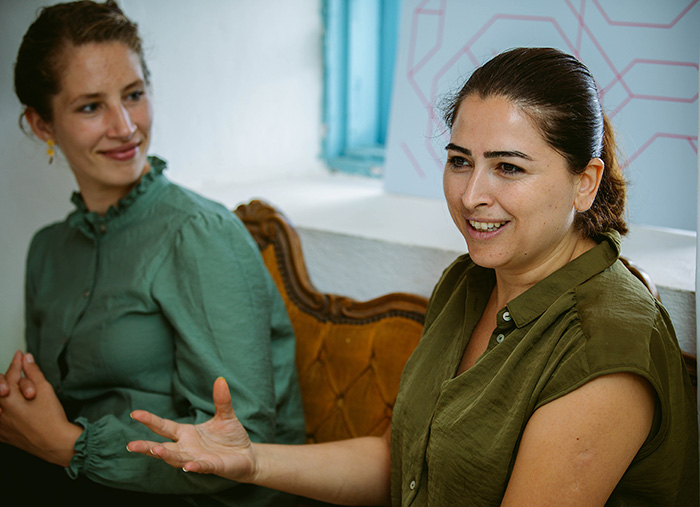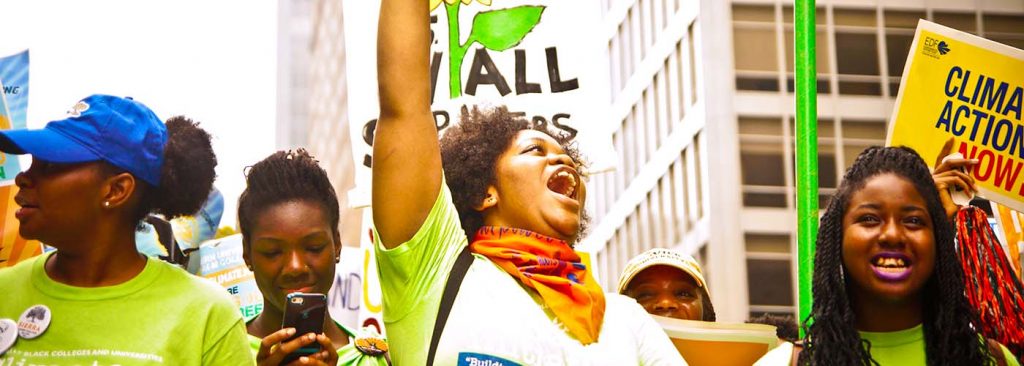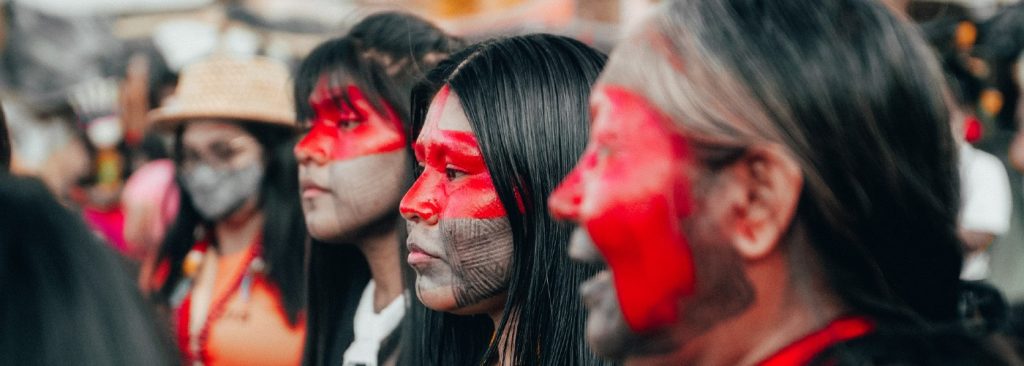The environmental and economic fallouts of climate change are a lived reality felt across the globe. While most major contributors to carbon emissions are countries in the Global North, the greatest environmental and social impacts are being felt by people in the Global South.
This is particularly true for highly vulnerable countries across the MENA region due to the scarcity of water, green spaces, and economic and social well-being at the baseline. Here, countries have to import more than half of their food and are some of most water-scarce in the world. The unjust and unequal effects of the climate crisis on people across the globe begs the question: How can we bridge the gap and bring justice to climate action?
At Hivos, our goal is to put justice, equity and human rights at the core of a global climate action. One of our instruments for this is GreenWorks program. Implemented by an alliance and led by Hivos, it aims to create sustainable business and job opportunities for more than 9000 young women and men in the green economy in North Africa.
What happens when climate action misses the point?
From 2003 to 2020, funding for climate action in the MENA region amounted to $1.5 billion. Nevertheless, the distribution of these funds was not based on the severity of climate impacts on local populations and environments, with Egypt and Morocco receiving almost 50% ($730 million) of the total. Moreover, 74% ($1.1 billion) of the funding was allocated for climate mitigation interventions, mainly building solar farms across the region, when the real focus should have been adaptation interventions.
Global climate action efforts have unjustly failed to include a human lens in their strategy and tackle the real crisis in the MENA region. Here countries are hit very hard by climate change – from droughts and water shortages to rising sea levels. The fact that almost 75% of a budget for climate action in a region responsible for less than 5% of global carbon emissions has been heavily skewed towards climate mitigation highlights the radical injustice at the heart of climate action strategies today.
How unbridled profit-seeking and lack of oversight destroyed Tunisia’s farmlands
In Tunisia, profit-seeking farmers and investors in agriculture projects have changed the natural make-up of Tunisian farmlands, replacing indigenous crops that require little to no irrigation with high water use fruits to cater to markets in the Global North. Moreover, with profit as their guiding compass, and without proper governmental oversight and monitoring, most of the agricultural production today uses methods that deteriorate the soil and waste scarce water resources. Investors then move on to new land, and farmers are left with deteriorated soil and no time or money to rehabilitate it.
The founder of L’HEREDIUM project in Tunisia, Jehid Bitri, told us that despite his family’s land being spared the worst of these unsustainable farming practices, it took him almost three years to regenerate the biodiversity needed for a healthy soil and quality produce. “Using permaculture is expensive at the beginning, and requires patience, dedication and above all love and respect for the land,” he said. Nevertheless, this transition in thinking and methods is a must for agriculture in Tunisia to survive today, despite the costs. Such initiatives should be at the core of climate action initiatives in the region. To ensure food security and the future of the country and the region, permaculture is a perfect way to adapt to water scarcity and climate change. It provides almost year-long employability and strengthens communities, while being friendly to the environment.
Climate change is not an equal opportunity crisis
Climate change is going to seriously aggravate the climate crisis in countries with poor agricultural structures, where transitioning is expensive and requires support, patience, and dedication. By supporting environmental interventions like permaculture, or other adaptations suited to local conditions, the climate action agenda will not only be helping reduce CO2 emissions, but will also make sure countries in the Global South are equipped to handle the impact of the climate crisis. This shift in climate action is beyond critical today. We at Hivos urge the participants at COP26 to bring forward policies and tangible commitments to focus climate action in the Global South on adaptation efforts.
Climate Justice
While the benefits of climate mitigation efforts are felt globally, the argument for equally distributed responsibility simply cannot be made, as the impacts of climate change affect different regions of the globe so disproportionately. Holding heavily impacted regions with low historical emissions accountable for the crisis caused by other countries is both morally wrong and unjust.
It is for these reasons that Climate Justice is one of Hivos’ three impact areas. We recognize the critical need to move climate action and crisis narratives beyond carbon emissions. Human rights and climate justice must be at the core of global climate action from now on.
Climate Justice goes beyond the environmental impacts on people and planet and adds a political and ethical dimension to our understanding of the climate crisis. It takes into account the historical responsibility of industrialized nations that have contributed most to today’s climate crisis, whether in the past or more recently. Climate Justice puts human rights at the center of a just and inclusive transition that prioritizes the needs of people who are suffering the most. It amplifies their voices and incorporates their experiences when jointly designing and executing environmental policies at the local and global levels.








